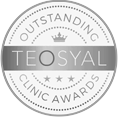Vitamin E is well known to have an important role in a variety of bodily functions, which are dependant on the proper intake of the vitamin. However, most of us aren’t entirely sure what Vitamin E does and exactly how much of it we need.
Below you will find a complete guide to Vitamin E and all its uses, which we hope will enlighten the public regarding the importance and many benefits of this vitamin.
What is Vitamin E?
Vitamin E is the best-known antioxidant present in the body. The vital function of this vitamin is to provide protection to the lipids from oxidation, as well as from free-radical damage, which is linked to various diseases and increased signs of ageing. Simultaneously, Vitamin E provides support to the body’s immune system, while encouraging the natural production of red blood cells in the body.
Contrary to what many may think, vitamin E is not just a single vitamin. It is in fact a chain of fat-soluble vitamins, and comes in 8 different types as follows:
- Four Tocopherols( alpha, gamma, beta and delta)
- Four Tocotrienols (alpha, gamma, beta and delta)
Our body has the natural ability to maintain alpha-tocopherol, which is the most common form of vitamin E that is found in blood vessels and tissues. It is thought to provide the greatest nutritional benefit to the body.
Vitamin E rich foods
Having a nutritious and healthy diet is an essential part of a healthy lifestyle, and Vitamin E plays a big role here. Below is a list of common of the foods that are rich in Vitamin E:
- Seeds of sunflowers (82% in one-quarter of cup)
- Spinach (25% present in 1 cup)
- Almonds (25% present in ¼ cup)
- Peanuts (20% in ¼ cup)
- Avocado (21% present in 1 cup)
Other vitamins enriched foods include uncooked green peas, cucumber, kale, tomato, celery, asparagus, safflower oil, soybean oil, kiwi fruit, mango and much more.
How much do you require Vitamin E?
The daily dose of Vitamin E recommended is 15 mg or 22.4 IU (international units) for adults.
For children
- 1-3 years old: 6mg daily (9 IU)
- 4-8 years old: 7mg daily (10.4 IU)
- 9-13 years old: 11 mg daily (16.4 IU)
For adult Females
- 14 years and above: 15 mg daily (22.4 IU)
- Pregnant: 15 mg daily (22.4 IU)
- Breastfeeding mothers: 19 mg daily (28.51 IU)
For adult Males
- 14 years and above: 15 mg daily (22.4 IU)
Many people get their daily requirement of vitamin E from dietary sources while others may take dietary supplements to attain the daily requirement. If you suffer from the Crohn’s disease, liver illness or cystic fibrosis then you may be recommended the extra dose of vitamin E because your body will fail to generate enough of it in such cases.
Vitamin E has proven quite popular in the bodybuilding community, and is often taken at higher doses due to its vital role in the development of muscles and prevention of unwanted muscle breakdown by lowering the levels of free-radical interactions, which in turn enhance the muscle mass. Many nutritionists advise the intake of this antioxidant supplement before a workout for maximum effect.
Vitamin E deficiency rarely occurs and is not usually caused by the poor dietary habits. The deficiency is known to cause serious health problems such as poor muscle coordination, neurological problems and anaemia. There are three types of people who are more prone to vitamin E deficiency:
- Infants born with low birth weight or prematurely born infants
- Thosewho are unable to absorb the fat in their diet
- Those suffering from rare metabolic disorders
Benefits of taking Vitamin E
The role of Vitamin E as part of a daily diet has proven to be plentiful:
- Balancing cholesterol: According to the research studies, Vitamin E works as a natural protective antioxidant that helps in fighting the oxidation of cholesterol. Vitamin E prevents the damage by free radicals to the body, which is a cause of cholesterol oxidation.
- Fights free radicals and prevents the development of diseases: Free radicals fight and break down healthy body cells which can result in heart problems or even cancer. These free radicals are naturally produced in the body causing severe damage when oxidised or accelerated. As vitamin E is a potent antioxidant, it has the strength of reducing free radicals damage and fight cellular inflammation; it can therefore naturally help to slow down the process of ageing. It has also been shown to fight the health-related issues such as heart diseases. According to the studies, it also causes a significant increase in the immunity of the body, which in turn reduces the onset of diseases.
- Repairs damage to the skin: Vitamin E provides strength to the capillary walls of your skin and improves it elasticity and texture working as a natural anti-ageing agent in your body. Research studies show that vitamin E also helps in reducing inflammation from within the body as well as from the skin, leading to a healthy and youthful look. It stimulates the healing mechanism of the body as it penetrates through the skin’s epidermis and is effectively used for treating sunburns. It is can also be used for the treatment of acne, wrinkles and scars.
- Gives thickness to hair: due to the antioxidant qualities of Vitamin E, it protects hair from environmental damage, while promoting blood circulation to the scalp. It also helps the skin to retain its moisture giving it a healthier and fresher look, whilst preventing dandruff.
- Helps balance hormones: It plays a vital role in balancing the endocrine and nervous systems of the body by naturally balancing the hormones.
- Helps in improving vision: Vitamin E reduces the macular degeneration which is related to ageing. To get the best result for vision, Vitamin E should be taken with sufficient amounts of Vitamin C and Zinc.
- Helps people suffering from Alzheimer’s disease: Due to the nature of Vitamin E preventing cellular degradation, it also decreases the risk of memory loss and the decline of function in people suffering from moderate to severe Alzheimer’s disease. When vitamin E is taken with vitamin C is reduces the risks of development of different kinds of dementia.
- Improves the strength of muscles and increases endurance: It can be used for the improvement of physical endurance, increasing energy and reducing the oxidative stress levels in muscles following exercise. It also increases the strength of muscles, whilst removing fatigue by promoting circulation of blood, strengthening capillary walls and nourishing your cells.
Side effects of Vitamin E
Vitamin E has endless benefits whether taken as the supplement or topically. It is advised not to exceed the recommended dose of Vitamin E, as when consumed in high doses, it can be a threat to health, especially for the individuals suffering from heart diseases or diabetes.
Some research studies also suggest that high intake of Vitamin E (between 300-800 IU daily) may increase the chances of a haemorrhagic stroke by almost 22% as the excessive intake of vitamin E increases the risks of bleeding.
Higher levels of Vitamin E may cause the following health consequences:
- Heart attack in people suffering from diabetes
- Worsening bleeding disorders
- Increase chances of returning head, neck, and prostate cancer
- Increased chances of death following a heart attack
How to distinguish natural and synthetic vitamin E?
Ideally, natural vitamin E found in foods is preferable, however in some cases people may require synthetic vitamin E intake also. Both formats are still considered as Vitamin E, however the body processes both in different ways. Only 50% of synthetic Vitamin E metabolised by the liver, while the other 50% is eliminated without processing and goes to waste. The following packaging labels can be used to differentiate between the natural and synthetic vitamin E:
- dl-alpha tocopheryl acetate or dl-alpha docopheral is synthetic vitamin E
- d-alpha tocopherol (there’s no “l” after the “d”) is natural vitamin E
Synthetic Vitamin E is manufactured in laboratories, while the natural Vitamin E is derived from vegetable oils.
No matter what your daily vitamin intake, if you fail to adopt a healthy lifestyle, you will not be able to maintain your health. The best format of combatting disease, ageing and degradation, us a combination of proper exercise and a healthy balanced diet. Without these, no matter what supplements are taken, their effects will be negligible.

















